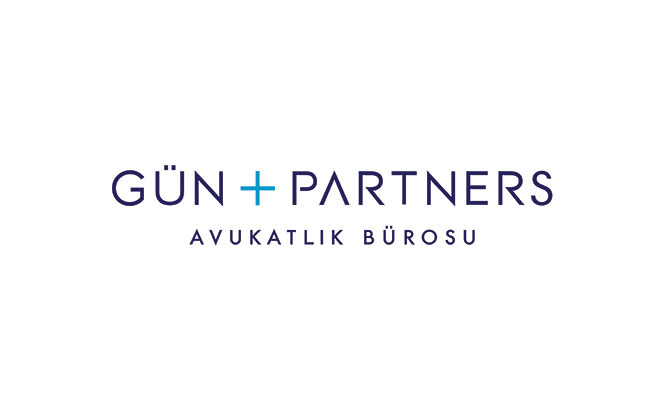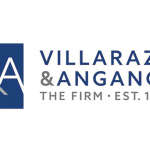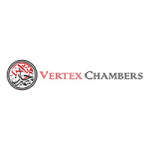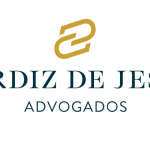Gün + Partners on the need to clarify the issue of application fees
Under Turkish law, the rules governing the collection of trial fees are regulated by the Law of Fees No. 492 (Law no. 492) and the applicable fees are under Tariff 1 of the Law no. 492. Article 4 of Law no. 492 also explicitly refers to Tariff 1 in terms of the fees applicable in the actions for enforcement of foreign judgments stating that the applicable fee will be determined according to the value, type and nature of the verdict.
The general rule under Tariff 1 is when the claim is a monetary one and a judgment is made on the merits of the case, a proportional court fee (judgment fee) which is calculated over the total amount subject to the dispute applies. The judgment fee is 6.831% of the total amount in dispute and ¼ of the judgment fee is required to be deposited in advance when filing the case (application fee).
Article 4 of Law no. 492 and the nature of the actions for enforcement of foreign judgments, which allows an examination merely on the existence of the conditions sought for enforcement, make the applicable application fee controversial in practice. While some scholars argue that Article 4 of Law no. 492 requires the application fee be proportionate and an adverse practice cannot be allowed unless the said provision is amended, others defend that actions for enforcement of foreign judgments are declaratory actions with no judgment on the merits and should be subject to fixed application fee. This controversy does not stay at academic level only; courts (of all levels) do not have a unified practice either. This riddle closely concerns the official attorney fees to be ruled in favour of the winning party as well because whether it will be a fixed or proportionate one depends on the solution of the very same controversy.
This ambiguity justifies a wait-and-see approach when initiating the action before the first instance court. That means the case can be filed by depositing the fixed fee only. If the court disagrees, it may, either ex officio or upon the objection of the defendant, order the plaintiff to deposit the missing portion of the application fee and grant a definite period for that. After this point, it is required to comply with the court’s order. Otherwise, the case file will be shelved first and unless renewed within three months, be deemed as non-filed.
If the first instance court also opines that the applicable fee should be the fixed one, the plaintiff can save its money during the first instance stage. Yet, a missing application fee can appear as an appeal ground or, depending on which chamber is assigned to the case, the Regional Appellate Court can ex officio decide that the missing portion must be deposited. Yes, there is not a unified practice between the appellate courts of different regions or the chambers within the same region either! When the decisions of the Istanbul Regional Appellate Courts in the last two years are reviewed, we see that the 16th, 17th and 44th Chambers ruled that the enforcement actions are declaratory actions and should be subject to fixed application fee whereas the 6th, 12th, 13th, 14th and 15th Chambers ruled in favour of a proportionate application fee pointing out Article 4 of Law no. 492. We also see conflicting decisions between the 22nd Chamber ruling for a proportionate application fee and the 31st Chamber of Ankara Regional Appellate Court ruling for a fixed application fee whereas one decision from the 17th Chamber of Izmir Regional Appellate Court favours the proportionate application fee.
Not surprisingly, the same divergence also exists between the different chambers of the Court of Cassation. It is almost the settled practice of the 11th Chamber of the Court of Cassation, which is the chamber with expertise in commercial law and is assigned for disputes concerning the Turkish Commercial Code, insurance and banking law, to rule in favour of the fixed application fee in enforcement actions pointing out the declaratory nature of the case and also in defence of right to access to court. The 11th Chamber has maintained the same approach in its precedents of the last two years except a decision in 2021 where it approved the decision of the 14th Chamber of the Istanbul Regional Appellate Court ex officio ruling in favour of a proportionate application fee. This decision stands as a unique one in between the decisions of the 11th Chamber. In fact, it does not even discuss the applicable fee and seems not like a conscient decision.
The 6th Chamber of the Court of Cassation, with expertise mainly in contracts of work, construction contracts on land share or flat basis, adopts the same approach as the 11th Chamber whereas the 7th Chamber, with its expertise in property law, and some other chambers, mostly experienced in inheritance and family law, rule in favour of the proportionate application fee.
This riddle creates an uncertainty in terms of the costs that a party seeking to enforce a foreign judgment would encounter during the entire trial period. Besides, one of the possible scenarios results in a reiteration of similar costs that the plaintiff covered when initiating its main claim in the first place in the relevant jurisdiction. This is one of the arguments that the supporters of the fixed application fee rightly rely on as the contrary case significantly hinders the right to access to court. Yet, it is also correct that Article 4 of Law no. 492 clearly refers to the value of the verdict in determination of the applicable fee, allowing the collection of the proportionate application fee. For this reason, even those favouring the application of the fixed application fee criticise the decisions of the 11th Chamber of the Court of Cassation deeming them contrary to the clear provision of the law. Precedents are dynamic and one is not binding on another. As long as the law allows, the practice of the chambers favouring the fixed application fee can also change. It is therefore crucial also for legal certainty for the lawmaker to address this issue with an amendment to Article 4 of Law no. 492.
This partly happened for enforcement of foreign arbitral awards when the relevant section of Tariff 1 was amended in July 2016, stating that proportionate fee would not apply for arbitration proceedings. The amendment was not specific to enforcement actions, but to arbitration proceedings that require the courts’ involvement, and this also has caused different interpretations as some courts and chambers of the Regional Appellate Court and Court of Cassation avoided applying the fixed fee because the amendment did not concern the enforcement actions. After the decision of the General Assembly of Civil Chambers of the Court of Cassation in 2019, ruling that the 2016 amendment requires the fixed application fee, the practice of the courts in enforcement of foreign arbitral awards has become more settled in favour of the fixed fee. Yet, adverse practices, especially among the chambers of the Regional Appellate Courts, still exist as we see in the last two years’ decisions. This demonstrates the need for the lawmaker to take actions with clear legal provisions removing this ever-lasting riddle. The more settled practice of a fixed application fee in enforcement of foreign arbitral awards is another reason to clarify the issue in terms of enforcement of foreign judgments as adopting different rules for these very similar enforcement procedures is purposeless.
For more information contact

Aysel Korkmaz Yatkin
Partner
E: aysel.korkmaz@gun.av.tr

Beril Yayla Sapan
Partner
E: beril.yayla@gun.av.tr

Asena Aytuğ Keser
Managing associate
E: asena.keser@gun.av.tr















